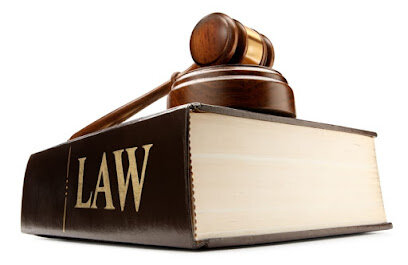Best DUI & DWI Lawyers in Texas
Share your needs with us, get contacted by law firms.
Free. Takes 2 min.
Or refine your search by selecting a city:
List of the best lawyers in Texas, United States
About DUI & DWI Law in Texas, United States
Driving Under the Influence (DUI) and Driving While Intoxicated (DWI) laws in Texas are strict and carry serious consequences. In Texas, DWI generally refers to operating a motor vehicle with a blood alcohol concentration (BAC) of 0.08 percent or higher, or while under the influence of drugs or alcohol that impairs your ability to drive. DUI in Texas usually applies only to minors under the age of 21 who operate a vehicle with any detectable amount of alcohol in their system. Both offenses can have significant legal, financial, and personal repercussions, including fines, jail time, license suspension, and increased insurance costs.
Why You May Need a Lawyer
Legal representation is crucial if you are facing DUI or DWI charges in Texas. Common situations where you may need a lawyer include:
- You have been arrested or charged with a DWI or DUI offense. - You are facing enhanced penalties due to prior offenses, high BAC, or aggravated circumstances. - You are concerned about losing your driving privileges or managing license suspensions. - You want to challenge the evidence, such as breathalyzer or field sobriety test results. - You hope to reduce penalties or negotiate plea bargains. - You need guidance on the legal implications for commercial drivers or minors. - You have immigration concerns that may be impacted by a DUI or DWI conviction. An experienced DUI or DWI lawyer will understand Texas law, potential defenses, and the best strategies to protect your rights and future.
Local Laws Overview
Texas law defines DWI as operating a motor vehicle in a public place while intoxicated. Intoxication means lacking the normal use of mental or physical faculties due to alcohol, drugs, or a combination of both, or having a BAC of 0.08 percent or more. For drivers under 21, any amount of alcohol is grounds for a DUI charge, known as the "Zero Tolerance" law.
Key points under Texas DUI & DWI law include:
- First-offense DWI can result in up to 180 days in jail, a fine of up to $2,000, and license suspension for up to one year. - Enhanced penalties apply for repeat offenders, BAC of 0.15 percent or higher, or cases involving injury or death. - Refusing a breath or blood test can lead to automatic license suspension under Texas's implied consent law. - Penalties are more severe for commercial drivers and for intoxication offenses involving minors. - Administrative and criminal penalties are separate proceedings in Texas. Understanding the local statutes and how they apply to your situation is vital for building an effective defense.
Frequently Asked Questions
What is the difference between DUI and DWI in Texas?
In Texas, DWI (Driving While Intoxicated) typically refers to adults who drive with a BAC of 0.08 percent or higher or are otherwise impaired. DUI (Driving Under the Influence) generally applies to minors under 21 who have any measurable alcohol in their system.
What are the penalties for a first DWI in Texas?
A first-time DWI offense in Texas can result in a fine up to $2,000, up to 180 days in jail, up to one year of license suspension, and an annual fee to retain your driver's license.
Can you refuse a breathalyzer or blood test in Texas?
You may refuse, but under the implied consent law, a refusal can trigger an automatic license suspension, and your refusal may be used as evidence against you in court.
How long will a DWI stay on my record?
A DWI conviction in Texas generally becomes part of your permanent criminal record. Expunction or non-disclosure may be possible in limited circumstances, usually for certain first-time offenders.
What happens if I am under 21 and caught drinking and driving?
Texas enforces a zero-tolerance policy for minors, meaning any detectable amount of alcohol could result in DUI charges, fines, license suspension, community service, and mandatory alcohol education.
Are there harsher penalties for high BAC levels?
Yes. A BAC of 0.15 percent or higher can result in increased fines and jail time, even for a first offense.
Will a DWI or DUI affect my insurance?
Yes. A conviction usually leads to higher insurance premiums and could result in cancellation of your policy.
Can I get a DWI reduced or dismissed?
It is possible, especially with legal representation. Options depend on the evidence, circumstances, and negotiation with the prosecution. Some drivers qualify for probation or deferred adjudication.
What if I have a commercial driver's license (CDL)?
Commercial drivers are subject to stricter standards. A BAC as low as 0.04 percent can result in a DWI charge, and a conviction may lead to disqualification from operating commercial vehicles.
Do I need a lawyer if I am charged with DUI or DWI?
Legal counsel is highly recommended. Texas DWI laws are complex, and a lawyer can help protect your rights, possibly reduce the penalties, or explore alternatives such as diversion programs.
Additional Resources
- Texas Department of Public Safety Driver License Division: For information on license suspensions, hearings, and reinstatements. - Texas Department of Transportation: For public information campaigns about impaired driving. - Mothers Against Drunk Driving (MADD): Offers victim support services and information on DWI laws. - Local county or municipal court websites: For court procedures, forms, and scheduling related to DUI & DWI cases. - State Bar of Texas Lawyer Referral Services: To find qualified legal representation in your area. These resources can provide valuable information and assistance for those navigating a DUI or DWI matter in Texas.
Next Steps
If you or someone you know is facing a DUI or DWI charge in Texas, it is important to act promptly. Start by gathering all documentation related to your arrest, including police reports and court notices. Consider contacting a qualified defense attorney who specializes in Texas DUI & DWI laws for a consultation. Many lawyers offer free or discounted initial consultations to discuss your case and possible defenses. Follow any court instructions regarding appearances or deadlines to avoid further penalties. Education and preparation are key to minimizing the long-term effects of a DUI or DWI charge. Lastly, consult trustworthy resources and consider seeking support services if alcohol or substance use is a concern.
Lawzana helps you find the best lawyers and law firms in Texas through a curated and pre-screened list of qualified legal professionals. Our platform offers rankings and detailed profiles of attorneys and law firms, allowing you to compare based on practice areas, including DUI & DWI, experience, and client feedback.
Each profile includes a description of the firm's areas of practice, client reviews, team members and partners, year of establishment, spoken languages, office locations, contact information, social media presence, and any published articles or resources. Most firms on our platform speak English and are experienced in both local and international legal matters.
Get a quote from top-rated law firms in Texas, United States — quickly, securely, and without unnecessary hassle.
Disclaimer:
The information provided on this page is for general informational purposes only and does not constitute legal advice. While we strive to ensure the accuracy and relevance of the content, legal information may change over time, and interpretations of the law can vary. You should always consult with a qualified legal professional for advice specific to your situation.
We disclaim all liability for actions taken or not taken based on the content of this page. If you believe any information is incorrect or outdated, please contact us, and we will review and update it where appropriate.
Browse dui & dwi law firms by city in Texas
Refine your search by selecting a city.
















